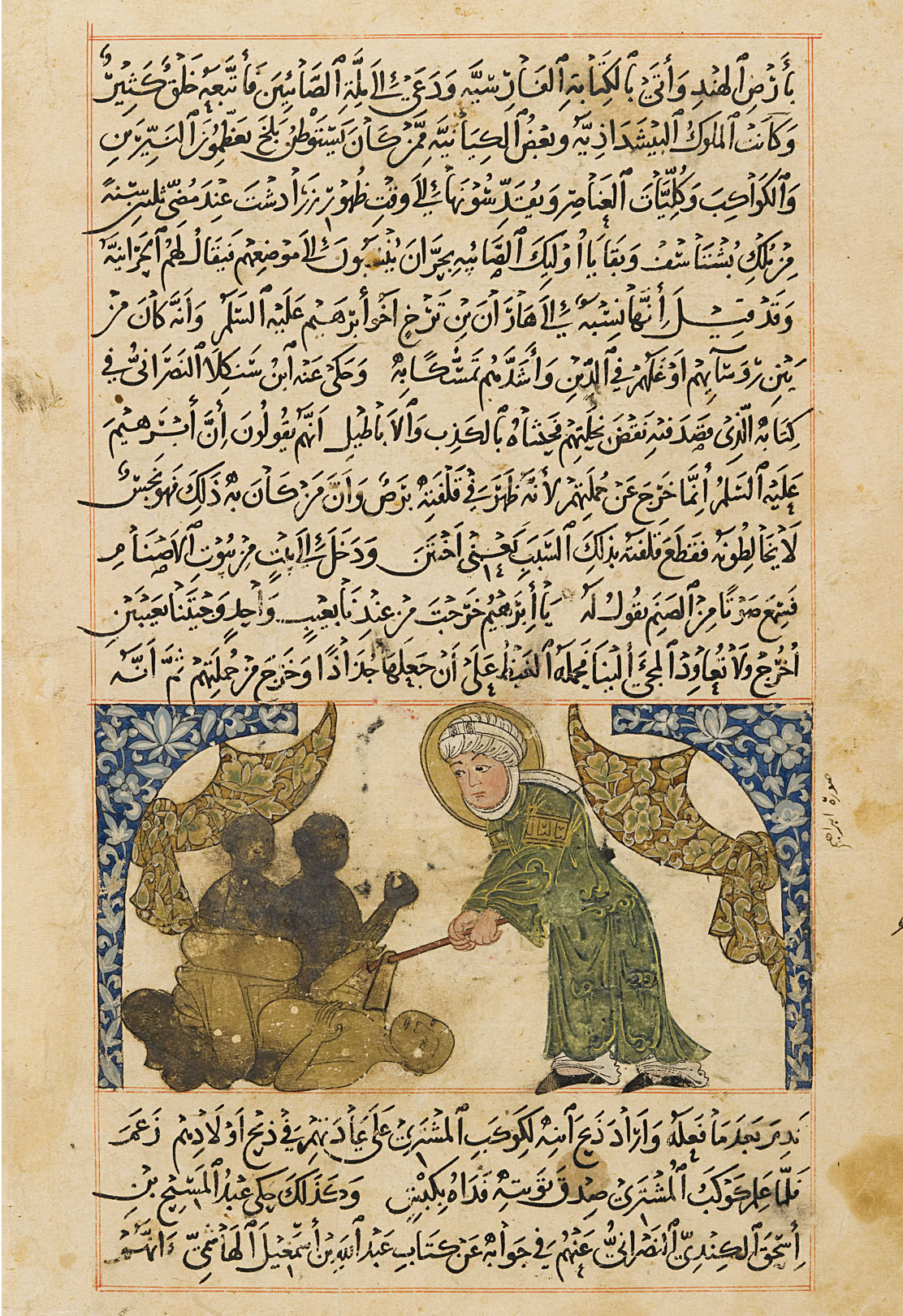A History of World Societies:
Printed Page 237
A History of World Societies Value
Edition: Printed Page 233
Chapter Chronology
Much like the earliest sources for Jesus and the Buddha, the earliest account of the life of Muhammad (ca. 570–632) comes from oral traditions passed down among followers. According to these traditions, Muhammad was orphaned at the age of six and brought up by his paternal uncle. As a young man, he became a merchant in the caravan trade that crisscrossed the Arabian desert. Later he entered the service of a wealthy widow, Khadija, and their subsequent marriage brought him financial security. Muhammad was extremely pious and devoted to contemplation. At about age forty, in a cave in the hills near Mecca where he was accustomed to praying, Muhammad had a vision of an angelic being who commanded him to preach the revelations that God would be sending him. Muhammad began to preach to the people of Mecca, urging them to give up their idols and to submit to the one indivisible God. After his death, scribes organized the revelations jotted down by followers or memorized into chapters. In 651 they published the version of them that Muslims consider authoritative, the Qur’an (kuh-RAHN). Muslims revere the Qur’an for its sacred message and for the beauty of its Arabic language.

Page from Arabic Manuscript The aesthetic appeal of Arabic calligraphy is easy to recognize in this page from a fourteenth-century manuscript. (Abraham Destroys the Idols of the Sabians, from The Chronology of Ancient Nations by Al-Biruni, 1307/Edinburgh University Library, Scotland/With kind permission of the University of Edinburgh/The Bridgeman Art Library)
For the first two or three centuries after the death of Muhammad, there was considerable debate about theological issues, such as the oneness of God, the role of angels, the prophets, the Scriptures, and Judgment Day, as well as about political issues, such as the authority of Muhammad and that of the caliph (KAY-lihf; political ruler, successor to Muhammad). Likewise, religious scholars had to sort out and assess the hadith (huh-DEETH), collections of the sayings of or anecdotes about Muhammad. Controversies over the authenticity of particular sayings continued for centuries. Muhammad’s example as revealed in the hadith became the legal basis for the conduct of every Muslim. The life of Muhammad provides the “normative example,” or Sunna, for the Muslim believer. Muhammad’s example became central to the Muslim way of life.
